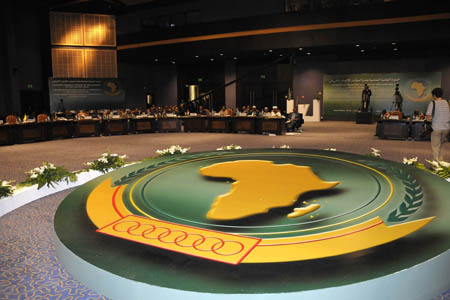An observation was made by a World Bank executive in early August 2012 about the influence of regional integration to the daily lives of Africans. This observation made me to ponder over the adverse effect the colonial boundaries Africa inherited from the colonial masters, are negatively affecting the economic lives of Africans.
Regional integration in the East African Community (EAC) is a mockery. EAC is an intergovernmental organisation constituted of five countries in East Africa: Kenya, Burundi, Tanzania, Uganda and Rwanda. In 2011, when Kenyans were in desperate need of food as a result of a serious drought in the western area of the country, farmers from Rwanda were greatly in search for a market for several tons of beans and maize that could not be sold in the local market. As a result, the price of maize dropped tremendously, thereby heavily creating a loss for local farmers.
Uganda witnessed the same scenario, when farmers abandoned maize in farms, because it was useless to spend time and money harvesting a produce whose value was almost insignificant. According to this World Bank official, the only time farmers in Uganda can sell any maize across to Kenya is when they do it illegally. So at the bottom line of it all, Rwandan or Ugandan farmers lose out on what could have been a good price for maize in Kenya while the government of Kenya has to spend more purchasing maize all the way from Zambia.
This same scenario plays out in the West African region, the Central African region and the countries in the Southern Africa region. The countries in these regional blocks still suffer tremendously from barriers to trade because of the colonial boundaries put in place by the colonial masters. Colonial- boundaries cut across clans and sometimes families, thereby separating those with plenty of food from relatives and friends without it.
Why should it be easier for a member-country of the EAC to purchase food from Zambia than from another member of the community? Are African states really honest to each other when they talk about regional integration? Or is this so-called regional integration a matter of hotel-based conferences and workshops?
Unless African states make bold moves to dismantle most especially trade barriers that inhibit free flow of goods and services across these colonial-made boundaries, the issue of integrating Africa will remain an issue of workshops and roundtables.
It sounds very preposterous for African leaders to be talking about a single monetary union which would warrant a single currency and single payment system, when these leaders cannot integrate simple things like marketing and agriculture.
I have always wondered what the government of Cameroon in the Central African region would lose in monetary terms if it let maize farmers in the Democratic Republic of Congo to make money by selling their maize to Gabon unhindered. Similarly in the EAC, what would the governments of Rwanda or Kenya lose if it allowed the people of northern Uganda to sell their sorghum and ground nuts to South Sudan?
While I commend the need for the protection of national revenue collection even as we champion the need for regional integration, there is need for a machinery in place which allows people across borders to trade in locally grown items, like food crops. This would entail the distribution of food from places where food is produced abundantly, to areas with low production. This move will also stimulate production and wealth creation among rural farmers in Africa.
When markets are opened for agricultural products, farmers can directly exploit these markets, and it helps increase incomes for rural farmers who in turn can purchase other goods such as manufactured products. As they spend on these manufactured products, they are paying taxes which are embedded in the prices of these goods. On the other hand, by consuming local products, they are also making it possible for the industries that manufacture such goods, stay in business as these industries expand and hire more people. Job creation is guaranteed.
Blindly respecting colonial boundaries and regional blocks especially via the prohibition of free trade, among states, be they in the same regional block or not, is an affront to the continent’s development. African leaders need to think seriously about the negative effects of colonial boundaries and promote trade amongst their states.
Chofor Che is an associate of AfricanLiberty.org and an integral part of the Voice of Liberty initiative. He is also a Doctoral Law candidate at the Community Law Centre, University of the Western Cape and blogs at http://choforche.wordpress.com/ .

